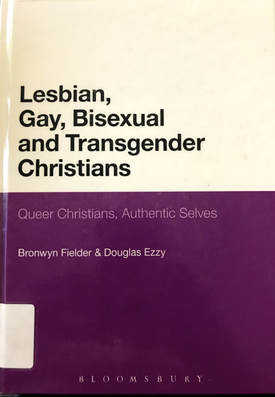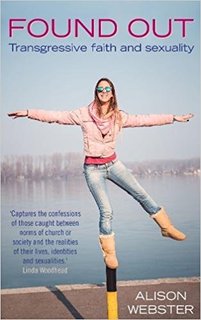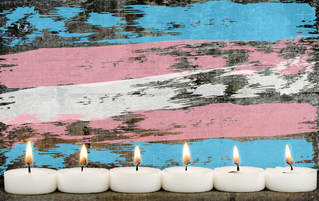 When I was nine or ten, I wore a terrific fancy dress costume in the form of a Norman soldier. My wonderful creative father created it, using a range of ordinary materials, including papier mache. I wore it for a fancy dress contest in which I entered with my sister. I was proud of it, particularly of how striking it was, and, above all, because of my father's outstanding skills. Yet, for all that, I felt lost, betraying myself, and even entombed in it, As I looked at my sister's costume, another amazing creation of my father, I knew I so much wanted to be wearing that. For hers was a fabulous Elizabeth 1 dress, with impressive mock velvet, a sumptuous skirt and puffed sleeves, and a charming collar, colours, and pleats. I was so captivated, yet strangely not envious of my sister herself, and was hugely delighted when she won the contest. For she looked even more gorgeous than she usually was, and that dress deserved its just reward. But a little bit of me cried inside. For all kinds of reasons, I'm constitutionally not cut out to be a Norman soldier. I never was. So it was a powerful symbol of my captivity...
2 Comments
 How often, I wonder, has a Lesbian, Gay, Bisexual, or Transgender Christian been attacked as a religious, moral, or logical 'impossibility', 'a contradiction in terms', a living oxymoron? Pretence and deceit are certainly themes which hover around gender diverse people and discussion of our lives and sense of being. Spiritually speaking, such features are typically regarded as unhealthy. Whilst, for instance, there are some positive stories of trickery in the Bible (notably in the case of the patriarch Jacob), these are usually the sign of a wayward, scheming, selfish or misdirected person. Later transitioning religious people are thus frequently caught in certain traps as they become the more 'authentic' selves God calls them to be. On the one hand, we may be called people of pretence and deceit by those who refuse to accept the realities of our identity. On the other hand, we may be attacked for hitherto seemingly living lives that were not true or misleading. At the very same time, we may also be dealing with our own shame, guilt, and confusions about what we may have 'pretended' to be. Yet, as we are reminded in both the powerful scriptural text of 2 Corinthians 6, and a just published book Lesbian, Gay, Bisexual and Transgender Christians: Queer Christians, Authentic Selves (by Bronwyn Fielder & Douglas Ezzy, Bloomsbury Press 2018),, we may be 'treated as impostors but are true' (2 Cor 6.8b)...  Are meaningful contemporary Christian sexual ethics possible? It depends where you look and to what you listen. No doubt many might be surprised, but there is actually a wonderful growing mine of resources, including Found Out: Transgressive faith and sexuality: the incisive and illuminating recent book by Alison Webster. Unfortunately, in bleak contrast, many 'official' Church statements have been far too blind, narrowed or vacuous, even within circles which purport to take human experience and the best of science and reason seriously. Over twenty years ago for example, as a priest in rural England, I vividly remember receiving an official declaration to Church of England clergy from the then Archbishops of Canterbury and York on the subject of marriage. It was unhelpful, seemingly constituting only a bald 'gate-keeper' reaffirmation of a theoretical position which no longer pertained if it ever did. It failed to recognise, never mind address, the pastoral realities faced by clergy: where almost every couple coming for marriage was already cohabiting; (some form of) sex before marriage was essentially de rigeur; and partners who were divorced, in various circumstances, were extremely common. Like the hastily put together statements on LGBTI+ issues of the time (sadly often since enshrined as a kind of fresh holy writ), it seemed like blinkers were the order of the day. Regrettably, things have not improved greatly, leading an increasingly large chasm between the actual sexual lives of faithful Christians and the Church as an institution. The 'official' Church has thus frequently appeared to be a frightened rabbit, hypnotised by the glare of the lights of contemporary sexuality, even when its pastoral practice, and many contributions of its best theologians, has often been quite otherwise. Today, in the face of further developments, not least the profound societal shifts in LGBTI+ understanding, it is hard to see how these things can hold together much longer. Happily, Alison Webster, in Found Out, is one of those who offers fresh and vital pathways, grounded in women's lived experience and a performative faith which leads to flourishing rather than stagnation and spiritual death...  How will we respond, in this trans awareness month, to the backlash gender diverse people have been facing? In Australia the postal survey has been particularly difficult for trans and gender diverse people. We have suffered all that the LGBTI+ community as a whole has endured, as our lives, bodies and mental health have been put on the line. In addition however, we have experienced a powerful, determined and unprecedented coordinated attack on our very existence and identities, with very little scope for response. For, frequently ignoring the actual postal survey question altogether, the 'no' campaign has spent so much of its time and money on whipping up fear through attacks on us and associated 'issues' like the vital initiatives of Safe Schools. Understandably the 'yes' campaign has been reluctant to be drawn into this, preferring to stick to its clear strategy of addressing the substantive marriage issues. This has left many trans and gender diverse people, not only in a war zone with other LGBTI+ people, but feeling quite defenceless at times. For many of us have been strengthened and immensely grateful for the support of our lesbian, gay and bi sisters and brothers, and many allies. Yet general awareness has been set back in many quarters and momentum gained by those who oppose us. So how will we move forward again together?... |
AuthorThe Revd Dr Jo Inkpin: Archives
March 2024
Categories
All
|
 RSS Feed
RSS Feed